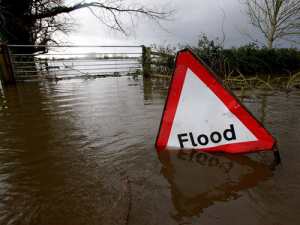M.I.A.
OPINION: The previous government spent too much during the Covid-19 pandemic, despite warnings from officials, according to a briefing released by the Treasury.
 Flooding in West Auckland has led the Insurance Council of New Zealand to remind customers that insurers are able to support them during the higher Covid-19 alert levels.
Flooding in West Auckland has led the Insurance Council of New Zealand to remind customers that insurers are able to support them during the higher Covid-19 alert levels.
The Insurance Council of New Zealand (ICNZ) has confirmed that insurers are able to support customers despite the current Covid-19 alert level settings.
The announcement has come after flooding affected West Auckland overnight.
“If you have been affected by the rain and floods, don’t hesitate to contact your insurer, who is open and available to support you with processes in place to comply with alert level requirements,” says Tim Grafton, chief executive of ICNZ.
As an essential service, insurers are able to support critical work and make safe repairs. All ICNZ members have confirmed that processes have been established to ensure all necessary steps are taken to limit or eliminate the risk of spreading Covid-19.
“Your first step is to contact your insurer, they will then be able to walk you through what their response will be like at Level 4,” says Grafton.
ICNZ says that after the initial steps to ensure the safety of yourself and those around you, there are some things you can do to help with the necessary recovery and support a smooth claim process.
Global trade has been thrown into another bout of uncertainty following the overnight ruling by US Supreme Court, striking down President Donald Trump's decision to impose additional tariffs on trading partners.
Controls on the movement of fruit and vegetables in the Auckland suburb of Mt Roskill have been lifted.
Fonterra farmer shareholders and unit holders are in line for another payment in April.
Farmers are being encouraged to take a closer look at the refrigerants running inside their on-farm systems, as international and domestic pressure continues to build on high global warming potential (GWP) 400-series refrigerants.
As expected, Fonterra has lifted its 2025-26 forecast farmgate milk price mid-point to $9.50/kgMS.
Bovonic says a return on investment study has found its automated mastitis detection technology, QuadSense, is delivering financial, labour, and animal-health benefits on New Zealand dairy farms worth an estimated $29,547 per season.

OPINION: Here w go: the election date is set for November 7 and the politicians are out of the gate…
OPINION: ECan data was released a few days ago showing Canterbury farmers have made “giant strides on environmental performance”.